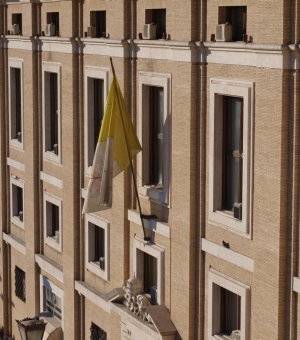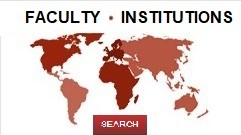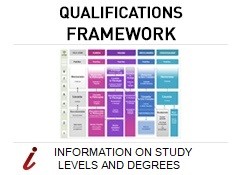Art. 153
§ 1. The Dicastery for Culture and Education works for the development of people’s human values in the context of Christian anthropology, contributing to the full realization of Christian discipleship.
§ 2. The Dicastery comprises the Section for Culture, dedicated to the promotion of culture, pastoral activity and the enhancement of cultural heritage, and the Section for Education, which develops the fundamental principles of education regarding schools, Catholic and ecclesiastical institutes of higher education and research, and is competent for hierarchical recourses in these matters.
Art. 154
The Section for Culture promotes and supports relations between the Holy See and the world of culture. It responds to the many issues therein with a preference for dialogue as an indispensable tool of true encounter, mutual interaction and enrichment, in order that different cultures may become ever more open to the Gospel, as likewise the Christian faith towards them, and that lovers of the arts, literature, the sciences, technology and sport may know and feel recognized by the Church as people at the service of a sincere search for the true, the good and the beautiful.
Art. 155
The Section for Culture offers its assistance and cooperation so that diocesan/eparchial Bishops, Episcopal Conferences and the hierarchical structures of the Eastern Churches may protect and preserve their historical patrimony, particularly documents and juridical instruments concerning and attesting to the life and pastoral care of ecclesial entities, as well as their artistic and cultural heritage. These should be kept with the utmost care in archives, libraries and museums, churches and other buildings in order that they be available to all interested parties.
Art. 156
§ 1. The Section for Culture promotes and encourages dialogue between the diverse cultures present within the Church, thus fostering mutual enrichment.
§ 2. It seeks to ensure that diocesan/eparchial Bishops, Episcopal Conferences and the hierarchical structures of the Eastern Churches enhance and protect local cultures with their patrimony of wisdom and spirituality as a resource for the whole human family.
Art. 157
§ 1. The Section for Culture arranges appropriate initiatives concerning culture; it follows projects undertaken by particular institutions of the Church and, where necessary, offers them its cooperation, without prejudice to the autonomy of their respective research programmes.
§ 2. In consultation with the Secretariat of State, it shows an interest in and follows the action programmes undertaken by States and international institutions aimed at the promotion of culture and the enhancement of cultural patrimony. It participates in these areas, as opportunity allows, in international forums and specialized conferences, and it promotes or supports congresses.
Art. 158
The Section for Culture establishes and promotes initiatives of dialogue with those who, though professing no particular religion, sincerely seek an encounter with God’s truth. It likewise shows the Church’s pastoral concern for those who do not profess any creed.
Art. 159
§ 1. The Section for Education cooperates with diocesan/eparchial Bishops, Episcopal Conferences and the hierarchical structures of the Eastern Churches so that the fundamental principles of education, especially Catholic education, may be welcomed and better understood, enabling them to be implemented contextually and culturally.
§ 2. It supports diocesan/eparchial Bishops, Episcopal Conferences and the hierarchical structures of the Eastern Churches which, in order to promote the Catholic identity of schools and institutes of higher education, can issue norms defining their criteria in a particular cultural context. Together with them, it ensures that the integrity of the Catholic faith is safeguarded in doctrinal teaching.
Art. 160
§ 1. The Section for Education supports diocesan/eparchial Bishops, Episcopal Conferences and the hierarchical structures of the Eastern Churches in establishing the norms according to which Catholic schools of all kinds and levels must be erected, in which provision should also be made for educational pastoral care as part of evangelization.
§ 2. It promotes the teaching of the Catholic faith in schools.
Art. 161
§ 1. The Section for Education cooperates with diocesan/eparchial Bishops, Episcopal Conferences and the hierarchical structures of the Eastern Churches in promoting throughout the whole Church the establishment and development of a sufficient and qualified number of ecclesiastical and Catholic institutes of higher education and of other institutes of study, in which the sacred disciplines and humanistic and scientific studies can be deepened and fostered, taking into account Christian truths. In this way, students can be suitably formed for carrying out their proper roles in the Church andin society.
§ 2. It is competent for fulfilling the necessary requirements in order that academic degrees issued in the name of the Holy See are recognized by States.
§ 3. It is the competent authority for approving and erecting institutes of higher education and other ecclesiastical academic institutions, for approving their statutes and overseeing their observance, in relationship also with civil authorities. As far as Catholic institutes of higher education are concerned, it deals with matters that, by law, fall within the competence of the Holy See.
§ 4. It promotes cooperation between ecclesiastical and Catholic institutes of higher education and their associations.
§ 5. It is responsible for issuing the nihil obstat necessary for teachers to be eligible to teach theological disciplines, as foreseen by art. 72 § 2.
§ 6. It cooperates with other competent Dicasteries in supporting diocesan/eparchial Bishops and other Ordinaries and Hierarchs, Episcopal Conferences and the hierarchical structures of the Eastern Churches in the academic formation of clerics, members of Institutes of Consecrated Life and Societies of Apostolic Life and lay people preparing for service in the Church.
Art. 162
The Dicastery for Culture and Education also coordinates the activities of a number of Pontifical Academies, some of long-standing origin, which involve the participation of international figures within the theological and humanistic sciences, chosen from both believers and non-believers. Currently these are: the Pontifical Academy of Fine Arts and Letters of the Virtuosi at the Pantheon; the Pontifical Roman Academy of Archaeology; the Pontifical Academy of Theology; the Pontifical Academy of Saint Thomas Aquinas; the Pontifical International Marian Academy; the Pontifical Academy Cultorum Martyrum and the Pontifical Academy for Latin.






